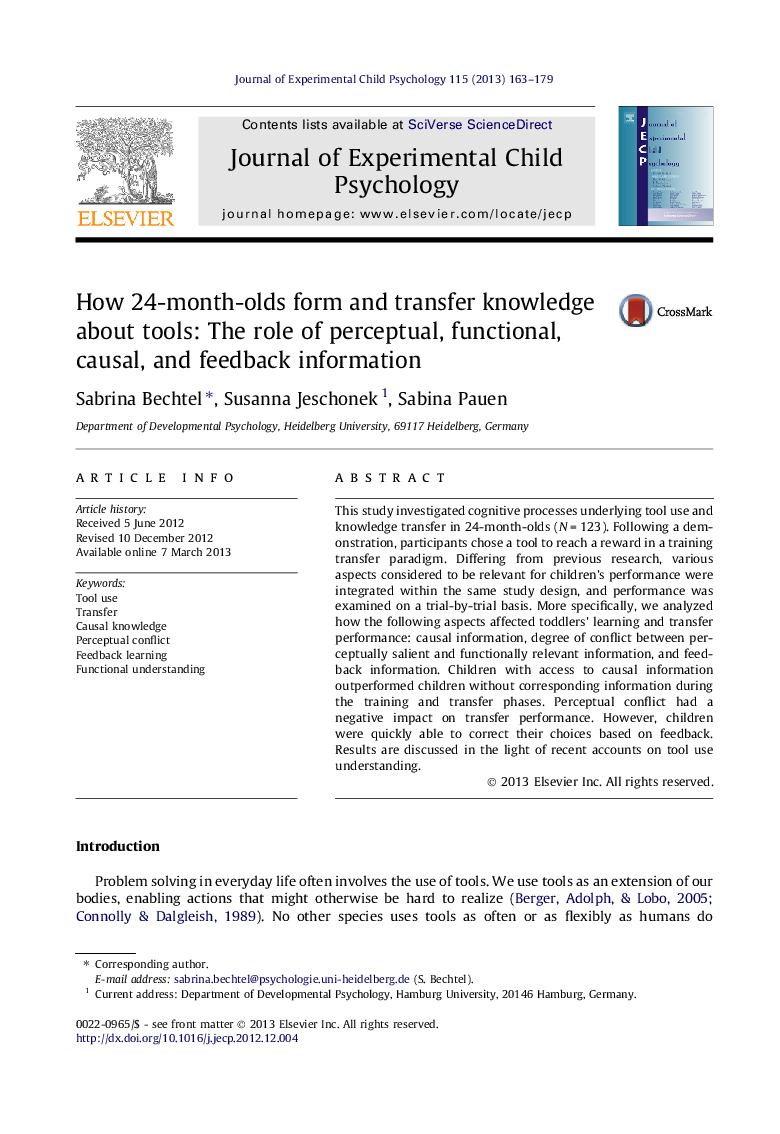| Article ID | Journal | Published Year | Pages | File Type |
|---|---|---|---|---|
| 918199 | Journal of Experimental Child Psychology | 2013 | 17 Pages |
This study investigated cognitive processes underlying tool use and knowledge transfer in 24-month-olds (N = 123). Following a demonstration, participants chose a tool to reach a reward in a training transfer paradigm. Differing from previous research, various aspects considered to be relevant for children’s performance were integrated within the same study design, and performance was examined on a trial-by-trial basis. More specifically, we analyzed how the following aspects affected toddlers’ learning and transfer performance: causal information, degree of conflict between perceptually salient and functionally relevant information, and feedback information. Children with access to causal information outperformed children without corresponding information during the training and transfer phases. Perceptual conflict had a negative impact on transfer performance. However, children were quickly able to correct their choices based on feedback. Results are discussed in the light of recent accounts on tool use understanding.
► Toddlers integrate causal, functional and perceptual information about tools. ► Feedback leads to quick improvement of tool-choices at 24 months of age. ► Access to causal information helps toddlers to identify functional tool attributes. ► 24-month-olds show flexible but systematic responses in a problem-solving task. ► Learning and transfer in tool-use situations is highly adaptive from early on.
